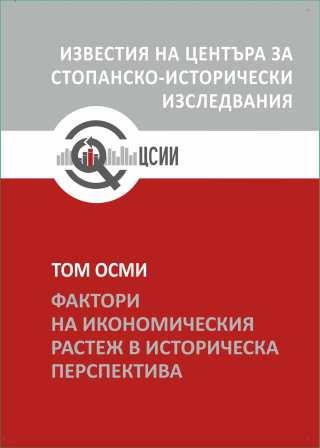ЗА ВСЕ ПО-ПЪЛНОТО ЗАДОВОЛЯВАНЕ НА ПОТРЕБНОСТИТЕ НА ТРУДЕЩИТЕ СЕ: СТАНДАРТЪТ НА ЖИВОТ В БЪЛГАРИЯ ПРЕЗ КОМУНИСТИЧЕСКИЯ ПЕРИОД
FOR THE EVER MORE COMPLETE SATISFACTION OF WORKERS’ NEEDS: THE STANDARD OF LIVING IN BULGARIA DURING THE COMMUNIST PERIOD
Author(s): Matthia Morys, Martin IvanovSubject(s): History, Economy, National Economy, Comparative history, Economic history, Political history, Social history, Recent History (1900 till today), Financial Markets, Human Resources in Economy, Socio-Economic Research
Published by: Център за стопанско-исторически изследвания
Keywords: standard of living; consumption; economic development
Summary/Abstract: We challenge the view that Centrally Planned Economies functioned well until the mid-1980s, delivering high economic growth and better living standards. As part of a broader research effort into living standards under state socialism, this paper focuses on nutritional evidence. Judged by calorie intake, we show that only in the 1970s did Bulgarian living standards surpass levels achieved already four decades earlier. Our findings are particularly discomforting for the rural population which was the big loser of collectivization and forced industrialization policies after 1946. Big Push industrialization reduced nutritional welfare in addition to coming at high human and societal cost.
Journal: Известия на Центъра за стопанско-исторически изследвания
- Issue Year: VIII/2023
- Issue No: 1
- Page Range: 197-208
- Page Count: 12
- Language: Bulgarian

